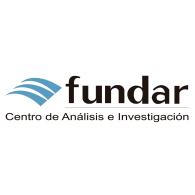Eight months after the Russian invasion and amid a global inflationary crisis, we spoke with Alejandro Rodriguez, Head of Advocacy at ICRICT (Independent Commission for the Reform of International Corporate Taxation), about how the economic impacts of that conflict have the potential to affect Human Rights, including Latin America and the Caribbean. Here are some of the ideas that came out of the dialogue.
1. The conflict between Russia and Ukraine has repercussions on poverty and inequality, including in Latin America.
Because of the globalized world in which we live, everything and everyone is interconnected. Let us start with the fact that Western countries imposed economic sanctions on Russia that increased the prices of oil and natural gas for the rest of Europe, which is highly dependent on imports of these products. Consequently, energy prices on that continent raised, which meant a rise in the cost of goods that Europe provided to the Global South. The war caused Ukraine, one of the world's major producers of fertilizers—such as urea— to stop producing in the quantities it used to. The consequence? Food, which needs immense amounts of them to mass-produce it, also went up in price, deepening poverty and inequality. For the moment, this is one of the impacts of the conflict in Latin America and the Caribbean, as the lowest-income households are the most affected.
2. As a result of price increases, inflation may affect rights
While the conflict has led to the reconfiguration of budgets in countries such as Germany, where military spending doubled for the first time in decades, inflation forced Latin American and Caribbean countries to increase central bank interest rates as a recipe for fighting inflation. This prescription implies a downturn in the economy (which many economists may call a recession) and may lead states to make austerity decisions —with less spending for sectors related to economic, social, and cultural rights, such as public services. Such decisions are contrary to the first principle of the Human Rights in Fiscal Policy Initiative: Human Rights enforcement must be a fundamental objective of fiscal policy. At the same time, these global shocks are generating an economic decline in many countries, which means lower tax revenues for the welfare and guarantee of the rights of populations.
3. Latin American and Caribbean states face a new fiscal challenge
States have to implement public spending measures to soften the blows of inflation, but this requires more resources. This option is not so easy, as the countries of Latin America and the Caribbean are already heavily indebted to deal with the effects of the COVID-19 pandemic, and they have a limited financing capacity.
4. But governments are called upon to look at new sources of funding that would allow them to avoid austerity policies.
Wealth taxes, for example, are a fundamental measure that states should contemplate to help respond to the crisis without the need to enter into austerity measures, which have been shown to affect poverty and inequality. But there are measures other than the wealth tax, such as a model of fair taxation of multinationals, with a global minimum rate that would make these companies pay a corporate income tax of at least 21% or 25% in the places where they carry their activities. That would bring a lot of resources to countries who are not receiving resources from multinationals because they divert their profits to jurisdictions that are tax havens or have very low or zero corporate tax rates. This idea makes sense from Principle #14 of the Human Rights in Tax Policy Initiative: non-state actors, including corporations and intermediaries, have Human Rights responsibilities concerning their tax behavior.
5. The Russia-Ukraine conflict has put fiscal challenges. But has also opened an opportunity for transparency measures
The package of sanctions by Western countries on Russia is one way to put pressure on the Putin government. However, the pressure would increase if, among other measures, the assets in tax havens of oligarchs close to the president could be frozen or confiscated. This goes against Principle number 7 of the Human Rights in Tax Policy Initiative, which refers to the need for transparency in these matters. According to data from the European Tax Observatory, the wealth of Russian millionaires outside Russia is equivalent to 85% of Russia's national income. The problem is that it is unknown where it is, and there are no ways to confiscate such assets.










